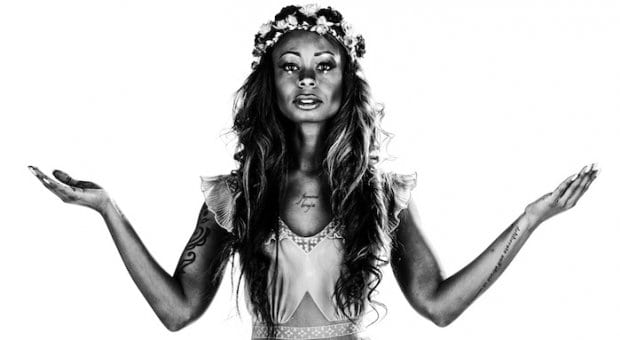Buddies in Bad Times Theatre artistic director Brendan Healy dropped the announcement of his fifth season April 15. The 2014/15 season will see the world premiere of Lois Fine’s lesbian break-up story Freda and Jem’s Best of the Week along with the English-language premiere of celebrated Québécois playwright Michel Marc Bouchard’s Tom at the Farm.
The season also sees the return of two past hits. After a successful cross-Canada tour, Evalyn Parry’s musical meditation on two-wheeled transport Spin comes home to the place it was born. At the same time, Tawiah M’carthy’s Dora Award–winning Obaaberima will go on the road, touring to Ottawa and Vancouver. We chatted with Healy about the year ahead.
Xtra: What was your vision in planning this season?
Brendan Healy: The big theme this season is family, queer families, families we create, and families we inherit. It wasn’t something I planned as much as something that happened organically. On a personal level, I’m pushing 40, so questions of my legacy are more at the forefront of my thinking. Perhaps there was something happening there unconsciously.
Last season saw the first presentation of seminal queer Canadian playwright Michel Tremblay’s work at Buddies. This season sees Michel Marc Bouchard, another essential queer Canadian playwright, have his first play presented there. Is there a larger pattern going on?
I don’t know why Bouchard hasn’t been produced here before. He had a long-standing relationship with Factory Theatre in Toronto, and playwrights tend to find their homes and stick with them. I don’t think there’s much significance in him coming here, except he’s a stunning, incredible writer we’re very happy to have, and we’re hoping it’s the beginning of a longer relationship.
This is the first season in which you aren’t directing anything. Why?
There’s no big reason. It was mainly just about the projects themselves and that there were better directorial matches for them. But besides that, I think it’s important to provide opportunities for directors besides me. It’s good to bring in new voices, and it also opens up my time to look at other aspects of the organization that need my attention.
How do you feel this season stacks up against the previous seasons you’ve put together and the history of Buddies?
The company has 35 years of amazing product to stand behind. In terms of how this season measures up, it’s probably too early to tell. What I can say is that I really try to bring in artists who’ve had experience elsewhere and make this an opportunity to interact with our culture. There’s an artistic freedom to take risks with our audience not every artist will have in their other projects. The hope is that we can infuse them with our culture at the same time they infuse us with their experience.
***
Along with the announcement of its new season, Buddies also dropped the hotly anticipated news of its newly appointed Rhubarb Festival director, Mel Hague. The Mississauga native is the dramaturge of Obsidian Theatre Company and has previously worked with Factory Theatre, fu-Gen and the Shaw Festival. We talked with Hague about her new position and her plans for the festival.
Xtra: How did it feel to get the job?
Mel Hague: I’m a bit overwhelmed, actually. Rhubarb has such a history as a festival, and it’s so important to the way groundbreaking new work has been developed in Canada.
In my own life, I’ve used theatre to get in touch with my racial identity, but I’ve never used it to get in touch with my sexual identity. The last year has been about understanding myself as a queer theatre artist and how that informs my approach as a dramaturge. Rhubarb is such a wonderful place because you can bring all these diverse people together around a shared interest in artistic experimentation in its rarest form. It’s something I’ve always wanted to be a part of.
The festival has previously been run by theatre directors, producers and performance creators, but you’re the first dramaturge who’s taken on the job. Does that suggest the festival is moving away from being a performance creation platform, as it has been in the last few years, and back to being a new-play development space?
What I’m looking for is a longer relationship with artists as opposed to bringing people in just for the festival. It’s about creating longer conversations with artists and longer conversations about art.
What’s your vision for the festival in 2015?
This year is very much in flux, so I’m just sort of getting my feet wet. What I can say so far is that my vision is artist-driven, so I need to actually speak to the artists and figure out what they need from the festival, rather than creating a form that artists can slot themselves into.
Last year’s festival saw the loss of the Department of Canadian Heritage grant, which caused a major stir in the community and a lot of headaches for the company. What does the financial footing of the festival look like this year?
Part of the reason to bring me on was to look at alternative ways of funding and alternative ways of framing the festival. We’re rethinking how the festival fits into the larger picture of Buddies as an institution. Funding bodies aside, there are a million reasons we can get bogged down about the problems theatre has to face. But the art is still so relevant. I don’t get from any other form what I get from theatre. There’s something in me that seeks that personal connection and that wants for someone to tell me a story. I can’t say the form is anywhere close to irrelevant.


 Why you can trust Xtra
Why you can trust Xtra


